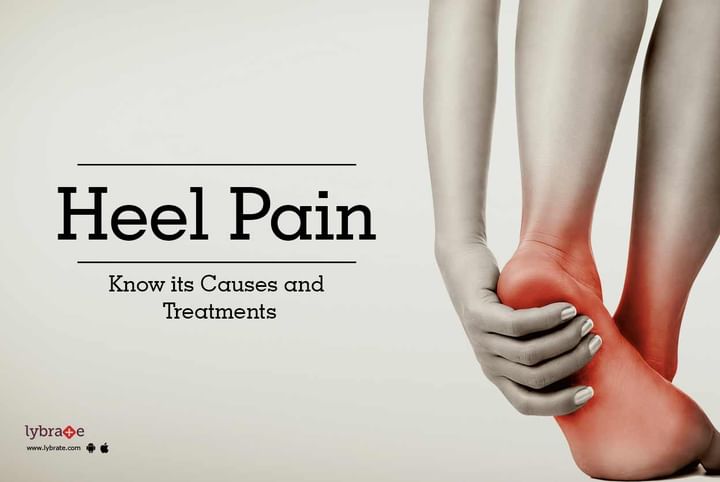Heel Pain: Know its Causes and Treatments
Oh my aching Heel!! The combination of foot and ankle consists of 26 bones, 33 joints and an excess of 100 tendons. The longest bone present in the foot is the heel. Over usage or injury to the heel would lead you to experience pain in the heels. The severity of the heal pain can range from mild to excruciating.
The cause behind heel pain is typically associated with excess usage of the heel bone (learn more about to maintain bone and joint health). Straining of your heel occurs if you excessively pound your feet on surfaces that are hard, or you are overweight or even if you wear shoes that do not fit your feet properly. These strains cause irritation in the muscles, bones or tendons that are present in the heels. Some of the other common causes include:
- Heel Spurs: Development of heel spurs occurs due to the continuous stretching of the lining, which covers the heel. Upon continuous stretching, pieces of the lining tend to break off. Development of heel spurs is common in athletes who frequently jog or run. People who are obese also tend to experience pain due to heel spurs.
- Plantar Fasciitis: Development of Plantar Fasciitis occurs due to the inflammation of the tendinous tissue that connects the heel to the ball of the foot. Development of Plantar Fasciitis is common in athletes who frequently jog or run as well as people who wear shoes that don't fit the feet properly. It may occasionally be associated with Vitamin B12 deficiency and raised uric acid in blood
- Achilles Tendinitis: This is the inflammation of the Achilles tendon. Achilles Tendinitis occurs commonly in people who have active lifestyles, such as people who are joggers, runners or even dancers.
Treatment-
Physical therapy, medication or alternative treatments can be used to treat this form of pain. Medications for heel pain can only be in the form of anti-inflammatory drugs. Although these oral medications cannot significantly relieve heel pain, some injections containing substances such as corticosteroids, as well as Arthrocentesis (removal of fluid present in joints using hollow needles) might be able to provide relief. Recently PRP (Platelet Rich Plasma) injection have been found very useful in treating recalcitrant Plantar fasciitis and heel pains.
Common practices that can be used to relieve discomfort include:
- Application of ice to the heel for a duration of 15 minutes daily.
- Utilize over-the-counter pain medications .
- Have adequate amounts of rest .
- Wear shoes that fit properly .
- Walking on tip toes to stretch the plantar fascia helps to relieve heel pain.
If you wish to discuss about any specific problem, you can consult the doctor and ask a free question.



+1.svg)
